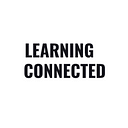Maths in the UK: 21st Century Rigour or 20th Century Rigor Mortis?
An interview with Conrad Wolfram, physicist, mathematician and technologist, Strategic Director and European CEO/Co-Founder, Wolfram Research.
Conrad is a leading advocate for a fundamental shift of maths education to become computer-based or alternatively introduce a new core subject of computational thinking. He founded computerbasedmath.org and computationalthinking.org to fundamentally fix maths education for the AI age — rebuilding the curriculum assuming computers exist. The movement is now a worldwide force in re-engineering the STEM curriculum.
What are the biggest problems facing the education system in the UK?
The big question is: what are we going to do about the fourth industrial revolution, and the fact that it appears to be taking over quintessentially human skills? What does that mean for what a human needs to learn? Obviously, competing with what computers do best doesn’t seem where we should be focused on in education. When you look at elements of the UK maths curriculum and what students are learning, there’s a problem. I think people now recognise that there is a major problem with maths and it’s much more evident than ever before. There is a widening disconnect between what students learn in schools and the realities of work.
Which education systems are best preparing students for their future?
The truth is, every country is stuck with the same set of problems to some extent. The real problem is education has got completely stuck. You can’t change the subject because you need to change the assessments which govern what is taught. In order to change the assessment, you typically have to get governments, teachers and the schools involved to agree with the suggested changes. It’s a very difficult process which takes years. My work with Estonia has led me to see how forward thinking the education system is there. They want to do things differently.
How did you go about developing your curriculum for computer-based math?
We reverse engineered it. I recommend starting with the problems that you think might be relevant to young people. If it’s interesting and useful then work back to see what mathematics it actually uses. This isn’t how the UK Maths curriculum was built. Normally, it involves subject experts sitting in a room and deciding what should be included from a list of things. What they’re doing is evolving old subject content and trying to adjust it without fully enough connecting it to how it can be used in today’s world.
What advice would you give to a teacher on how they can adapt the school curriculum so that it supports the development of relevant skills for the workplace of the future?
There’s only so much you can do without actually changing the subject. Try to put computational thinking on top of what’s there. There’s more flexibility to do this in science. On our website, you can find many demonstrations that members of our community have created that relate to many topics within the standard science curriculum. Educators can create connections between the curriculum and computation. Let the students play with them even if they don’t know how to build the model. This encourages them to build problem sets from different points of view.
You must ask some interesting questions at parents’ evening. What usually happens?
Parents’ evenings are mostly very positive. My daughter’s school does a very good job and most of the teachers are great. I’ve noticed that the history lessons my daughter experiences are a lot more lively now than when I was studying it. More cross-curricular links are made. She was asked to write a creative piece on what life would be like after losing $5000 imaginary dollars during the Great Depression.
I find the only time I get frustrated is when I hear that students aren’t encouraged to challenge what they are learning in maths. This often leads to them not understanding what they are learning, becoming fearful of the subject and having their confidence knocked. It happens much more in maths than it does in French. There is tremendous pressure on numerical results like there has never been before.
There’s a general societal problem which goes outside of education where if you have a number for something, people jump to the number without actually challenging it. If I say I’ve got 3 metrics to measure how good this hospital is, the metrics might be gamed and don’t really represent how well the hospital is performing. Numbers don’t represent situations well enough. Students are often judged by their exam results and I think that it’s not very healthy. I’ve written my book The Math(s) Fix to set out a vision and steps for reforming education for the AI Age. It will be available this summer and I hope it will encourage radical changes in maths education worldwide.
Connect with Conrad on Twitter: @conradwolfram
